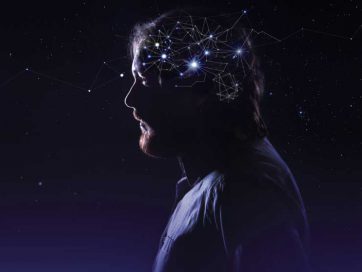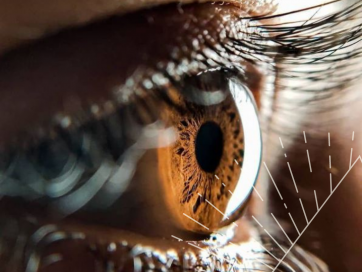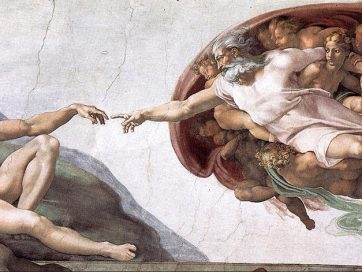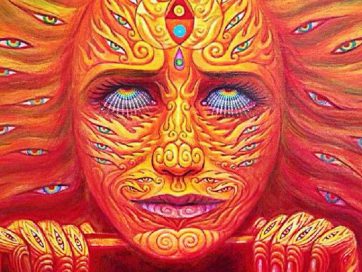It all began with just one person. One man, one woman, a single creature in a universe of more than 7 billion humans inhabiting the Earth transmitted a virus that over a period of 100 days managed to reach more than 200,000 people in the five continents and cause more than 8,000 deaths, forcing the UN to declare, on March 11, 2020, a pandemic on our planet – that is, an epidemic that knew no borders and had spread to every continent.
Now that the pandemic engendered by the SARS-Cov-19 virus, which causes Coronavirus disease (Covid-19), is a fait accompli, many people are saying that fiction had foreseen this situation. Actually, history itself had already foreseen it. The moment humans ceased being hunters and began living in society, physically close to other humans, contagion began. Over the centuries, other contagious diseases decimated entire populations. Malaria, tuberculosis, leprosy, influenza – all enabled medicine to develop in pursuit of a cure. The most recent large-scale pandemic, the Spanish Flu, struck us between 1918 and 1920, infecting 27% and killing 5% of the Earth’s population – somewhere between 50 million and 100 million people. All this happened merely a hundred years ago, but it was quickly forgotten.
Scientists were aware that a new pandemic was more than possible, that it was likely. Viruses, after all, evolve quickly and know no boundaries. Furthermore, with globalization, people and things are moving faster and faster around the globe. Yet, it was convenient for governments to cling to the illusion that the possibility of a pandemic was only a concern for writers of fiction. Well, the pandemic is now real and it came to show us that we were not prepared for it – neither politically, nor economically and much less emotionally.
Politically…
International relations are more fragile now than they have been in the last seventy years. We have seen many moments of tension between various countries, including Iran, North Korea, South Korea, Russia, China and the United States. Even where supposedly there was unity – the European Union – tension was widespread. After the departure of Great Britain, the future of the bloc is far from assured. Because of the measures taken against the spread of the coronavirus, the borders between the countries were closed, something unseen in almost 30 years.
The only human construction that can be seen from space is the Great Wall of China. That says a lot about us and our planet: our greatest joint endeavor was undertaken to separate people. For thousands of years, the wall protected the Chinese from invaders and helped Chinese culture to thrive. But, as always happens with walls, there comes a day when their existence completely loses meaning, because it is human nature to want to see what’s on the other side.
Acknowledging this is not easy, however. A 12-foot wall was built in Berlin by the German Democratic Republic to isolate the area under Soviet administration from the regions managed by the United States, United Kingdom and France. The split of the German capital into zones had been perpetrated by the winners of the World War II. With the Nazis out of the picture, Americans and Soviets began to contend for power on a planetary scale: it was the beginning of the Cold War, which divided nations between communists and capitalists. Since the idea was to divide, there was nothing better than a wall. So, smack in the middle of the 20th century, even as radio waves integrated the most distant peoples, East Germany built a wall to physically separate the city in two. Inaugurated in 1961, the Berlin Wall became the symbol of the Cold War, and was eventually demolished by the people in 1989.
The sense of solidity that a wall provides is extremely illusory. Consider the case of Wall Street, the first place on the planet where shocks are felt and where all that is solid melts into air in a matter of minutes. It is noteworthy that the world’s most important financial center is located in the exact physical place where a protective wall was erected by the Dutch on Manhattan Island to protect the first inhabitants from attacks by pirates, Indians and the English – as well as to prevent their slaves from fleeing. To be sure, the protection provided was not very effective. The English tore down the wall in 1699, but the name remained and most powerful stock exchange in the world was built where it once stood. Ironically, instead of repelling, Wall Street attracts pirates – even if they now wear Armani suits and navigate strategies for financial speculation.
Countries may have borders and build walls and palisades, but it is Wall Street that unites the world, to the extent that all economies are now interconnected. What happens in China almost immediately influences the United States. Interdependence is a fact, but ego makes governments create trade barriers – here is the human fixation on walls and fences in action again! So, instead of accepting interdependence and enhancing cooperation with the well-being of their populations in mind, governments prefer to let their ego speak louder and create endless tariff wars. The coronavirus came to show that all these barriers are illusory and that, rather than creating solid bonds, people usually prefer to remain in the superficiality of relationships, reinforcing their individualism.
Indeed, governmental responses to the current pandemic have tended to reflect the concerns of each public official with his or her own political future. Some downplayed the public health hazard posed by Covid-19, saying it was mere media hysteria. Concerned solely with petty personal political projects, they attempted to keep everyone’s head buried in the sand, delayed measures to fight the virus and allowed contagion to increase exponentially. These very same politicians also do not want to admit that every country depends on international trade even to cure their patients. For instance, the United States stopped producing antibiotics more than 15 years ago, because it was more advantageous to import them from China. Today, 90% of antibiotics are supplied by China. What politicians would earlier have deemed a dangerous dependency in a strategic area, has now been rewritten by the penmanship of financial results. In other words, the dominant thought seems to be, ‘If it is cheaper, it doesn’t matter if it’s strategic’.
Increasingly, politics is driven by economics – not the other way around. Governments depend on economic figures to convince their constituencies. This is a political truth that nobody wants to admit, namely, that economic results can negatively contaminate any candidacy. Voters, after all, prefer to vote for candidates who offer hopes of improvement rather than keep in office the bearers of negative facts.
Economically…
Viruses, one of the most rudimentary life forms in nature, are powerful because they evolve quickly. Successive mutations renew them and, therefore, make them more efficient – and, thus, more lethal. Interestingly, the modus operandi of viruses, especially that of SARS-Cov-19, includes many dynamics that are highly valued by our society, such as adaptability, rapid evolvement and ease of dissemination. In economics, these concepts dictate the rules and several markets work like that. Fashion works like that: new collections evolve to meet new desires and are disseminated in viral form by journalists, bloggers and influencers to engage an entire production chain. The same goes for the dynamics of the digital world. Devices gain updated versions annually, and the adoption of a new technology or brand is transmitted from one person to another through close contact, through experience. The same is true for applications. When Apple launched Facetime, many families adopted the iPhone wholesale because everyone could use the same application. The dissemination of other communication apps, such as WhatsApp, was also viral. News is essentially viral and, in art, there is no artist who does not want his or her music or performance to go viral organically on the internet. In other words, our sophisticated consumer society in the 21st century admires the dynamics of viruses.
The interesting thing is that, when a certain consumer fever sets in, people want that product right away and are not very worried about the impacts of its manufacture – because it takes place far away and, often, precisely behind the Great Wall of China. So, while everything seems to be working hunky-dory, Wall Street doesn’t care. In the real world of the economy, China is the “closest distant” one can imagine. Equipment and manufactured parts are cheaper in China and that is why much of the world’s manufacturing takes place there, which also offer an ample supply of cheap labor and little concern for environmental preservation. The fact is that what happens in China stays in China. And Western consumers feel perfectly at peace with that. In the end, that is what globalization is for, right? To make everything cheaper and more efficient, right? People’s blindness about what is behind low prices is very convenient.
The fact is that, according to the UN, global debt now exceeds US$ 253 trillion – or 223% of the global GDP. We are living in a bubble, in a false prosperity financed by monetary and moral debts.
Indeed, even the dissemination dynamics of the new coronavirus followed the order in which stock markets open. It sprung in Asia, passed through Europe and reached America. Exactly like the collapse of the markets. In the first weeks of March, investors checked the bearish stock prices in Asia before going to sleep, woke up early to see further decline in European exchanges and waited for the NYSE to open in time to watch the tsunami arrive and bring down the markets in America. When the situation on the trading floor becomes truly untenable, a circuit breaker is triggered. All trading is suspended and brokers are forced to stop, take a deep breath, try to soothe their panic and, better oxygenated, begin trading again. Generally, whenever a circuit breaker is activated somewhere, other exchanges tend to follow the lead. Fear is viral. Everything everywhere is connected politically and economically. But most of us haven’t yet realized what is even more important, namely, that everything everywhere is connected emotionally as well. And it all begins with just one person.
Emotionally…
The world is panicked and emotionally frail. People are increasingly short-term driven and highly influenced by everything they hear, whether right and wrong. SARS-Cov-19 has come to show us how emotionally unbalanced we are, how fragile and influenced both by information and the misinformation of fake news. This structural insecurity about reality enfeebles and unnerves us, compromises our mental defenses and leaves us open to all kinds of ideological propaganda. We are not prepared to deal with fear in its various forms: fear of illness, of isolation, of recession and of the consequences of our political choices. To overcome this situation, we must individually seek balance so that we may collectively balance ourselves.
It all started with a single man or woman. Yes, a single individual somehow come into contact with a bat. Studies show that similar viruses are present in 96% of bats. It may have been a coincidence – the new coronavirus could have come from any other exotic animal on the Wuhan market – but it came from this winged mammal. For this reason, it might be worth investigating what one of the most ancient cultures associates with this species.
In shamanism, the bat symbolizes rebirth, transition, invisibility and the power to observe invisible secrets. If a bat flies in your life, it means that your ego is about to be transformed. It means the end of a way of life and the beginning of a new one. It means that you will face darkness before you find the light of rebirth. Need I say more? Truly, the bat that transmitted to a single person what has now become a pandemic actually showed us that the world can no longer remain the same. We can no longer act only according to or motivated by our ego. We must stop creating barriers. We cannot continue to live in a bubble, unaware of the collectivity in which we are immersed.
The pandemic has clearly shown how much we all live in and through selfishness – running to hospital unnecessarily instead of making room for those who really need it or buying huge quantities of masks, hand sanitizers, cleaning products and food to create a false sense of security while leaving others lacking. We tend to always think about the individual and rarely in the collectivity. In grocery stores, it is “every man, woman and child for themselves.” Self-centered heads of State point the finger at each other, mutually accusing one another for starting the pandemic. This doesn’t matter now. The only way to overcome this situation is through union. Through the redemption of a communal awareness.
The whole world is being quarantined. This phase of isolation can be ideal for an internal journey that makes us stop, reflect, give due importance to what is fundamental and learn to value our home, our bed, our simple ability to breathe, our family’s togetherness.
The isolation phase is to save our community. We will all get to know ourselves much better at this moment. It is interesting to note that Covid-19 attacks mainly the lungs, hardening them and impairing their ability to oxygenate blood. (That is why some doctors recommend, as an off-the-cuff test, that you take a deep breath and see if you can hold the air inside your lungs for 10 seconds; if you can’t, it’s time to go to hospital to be tested for Covid-19.) With the exception of those who meditate out of habit, most of us aren’t even aware of the act of breathing, which is the most basic of life.
This is particularly significant. In the midst of so much consumerism and greed, people (all over the world) were losing track of what is really matters in life. Breathing is essential, but hardly anyone assigns any value to the act of breathing. For most of us, breathing is automatic. We never value what is routine.
It may seem contradictory, but the same virus that withers our lung capacity has also helped us to breathe better. With the quarantine, traffic and pollution in large cities decreased, and this has actually helped to save many suffering from Covid-19. Once again: everything is connected. It’s staring in our face, yet we don’t realize it. Or we lack the maturity to deal with reality.
With the suspension of tourism, the city of Venice saw the water quality of its canals change for the better. It did not take a decade, but only a few weeks to show that unrestrained consumption, uncontrolled tourism and irresponsible garbage disposal have a negative impact on the very same places that people dream of visiting. Note that the inhabitants of Venice are still living there, making it clear that the city is capable of sustaining its own population quite well and that the imbalance is caused by visitors who, for decades, have frantically overfilled the city. The virus has made us look deeply at their own cities, homes and fears.
After a pandemic was declared on March 11, the overriding guidance was social isolation. Around the world, schools suspended classes, sports events were canceled, bars and restaurants shut down and lost customers, and only supermarkets and grocery stores filled up with people until the shelves were empty. The main recommendations to prevent the spread of contagion are to keep our hands clean and stay at home. This has already happened in South Korea and Italy and has been the best strategy to contain the virus.
Yet, it seems that the world is not emotionally prepared to follow these rather simple recommendations. Many have expressed their fear by stocking up food and cleaning products – revealing enormous selfishness, because one’s hoarding is another’s dearth. Others seem uncomfortable with the idea of staying home – which is actually a huge contradiction, as being at home with one’s family should be the most comfortable situation possible. Houses, overall, have never been better equipped than today. The real problem is that people feel suffocated behind walls.
In the new reality of social isolation, cooking for and with one’s family has become part of our daily agenda. With schools closed and no classes, parents are forced to teach their children, to play with them, to keep their company. In other words, things that ought to be routine in the lives of those who live in big cities appear as challenges. The question is whether this period will be seen as an opportunity for personal growth, to truly live together with one’s family, to better understand one’s relationship with one’s work, to measure how much money is really needed to live comfortably.
That distant, virus-bearing bat is making us see several situations with greater clarity. It is making clear the ability or inability of governments and authorities to deal quickly with an unexpected issue. It is showing the relationship between public health services and private medicine. It has revealed companies’ ability to withstand and face crises. It showed employees the empathy of their managers. It placed family relationships under a microscope.
Families in which the elderly had at best a subordinate role learned how fragile old age is and that the risk of losing them is real. Even if loving them means being away from them, we have come to see this group in emotional and affective terms. Families were also forced to see how children behave and to feel concern for those who are close to them. It is important to have emotional maturity to understand the messages written between the lines of the coronavirus pandemic.
Above all, the bat virus has mapped out everyone’s ego – of governments, of companies, of each person. Faced with a microscopic agent, no one can be arrogant. Many tried to minimize the forcefulness of the epidemic, and in the meantime it became a pandemic. After disastrous statements, leaders like Donald Trump had to surrender and accept the dangers of contagion.
The bat also showed how selfishly we tend to act and that this can no longer go on in such a diversely integrated world. Covid-19 requires a response that involves redeeming the notion of collectivity – the world as a commune – and a new appreciation of what it means to live together. The pandemic has forced each one of us to understand what our priorities are, both our practical and in our emotional life.
The future
Coincidentally or not, Wuhan is the city where 5G technology was launched, the very same technology that will provide support for the future of many industries.
The world will undergo a complex transformation. The struggles we are experiencing have meant, for instance, that students are now attending virtual classrooms. This will force the educational sector to reinvent itself and students to find ways to discipline themselves, learning concentration and forgoing dispersion. Professionals will work more from home, which will require more discipline but can also generate more productivity. Perhaps this new work dynamics will make petty fault-finding and politicking a thing of the past, allowing a more pragmatic vision to guide work relationships. E-commerce will flourish because the bias against online shopping will be overcome. Those who have not yet discovered streaming services will soon become acquainted with this form of entertainment. Cinemas, theaters and shows that remained closed during the pandemic will gain a new appreciation by the public. The pandemic may finally dissolve hesitations over telemedicine – after all, in the contagion phase, there is nothing better than being seen by a remote doctor. And the possibilities for expanding the role of digital in our lives are countless. 5G, which is being tested in the same city where the virus surfaced, will help us transform our future.
It is awe-inspiring to pause and notice the synchronicity of this moment. We are all connected – in more ways than one.
I believe that we (as humanity) will come out of this predicament stronger. The world will never be the same again. This is a true milestone and our lives will be defined as before and after the coronavirus.
What the planet is experiencing in 2020 should guide the energies of the future. Digital services will be increasingly valued. At last, telemedicine will occupy the space it deserves and increase the area of medical coverage. People will understand better their impact on cities – and the impact of unbridled consumption on the planet. It will be a phase of reflection, rescaling, revolution in habits and emotional appraisal.
Doctors and the military say that perfect vision is 20/20. We are in the year 2020 and the coronavirus has given us an excellent opportunity to see our reality better. What the world was unable to envision 100 years ago, in 1920, at the end of the Spanish Flu epidemic, is now clear to us: science, collaboration and empathy are fundamental. After statements underestimating the impacts – and even the reality – of the pandemic, the president of the United States, Donald Trump, gave a speech acknowledging that the planet faces the most critical situation since the end of World War II. Finally, he clearly saw the obvious.
Cooperation, coexistence and collaboration will be important points. The lessons that China, Japan and South Korea learned during the epidemic are being passed on to other countries. The great lesson that the pandemic teaches us is that we must take our collectiveness into account. We are all aboard the same planet. Divisions are delusions. There are no limits on a round planet, walls are illusory, even when visible. Seen from space, Earth has no borders and never will.







